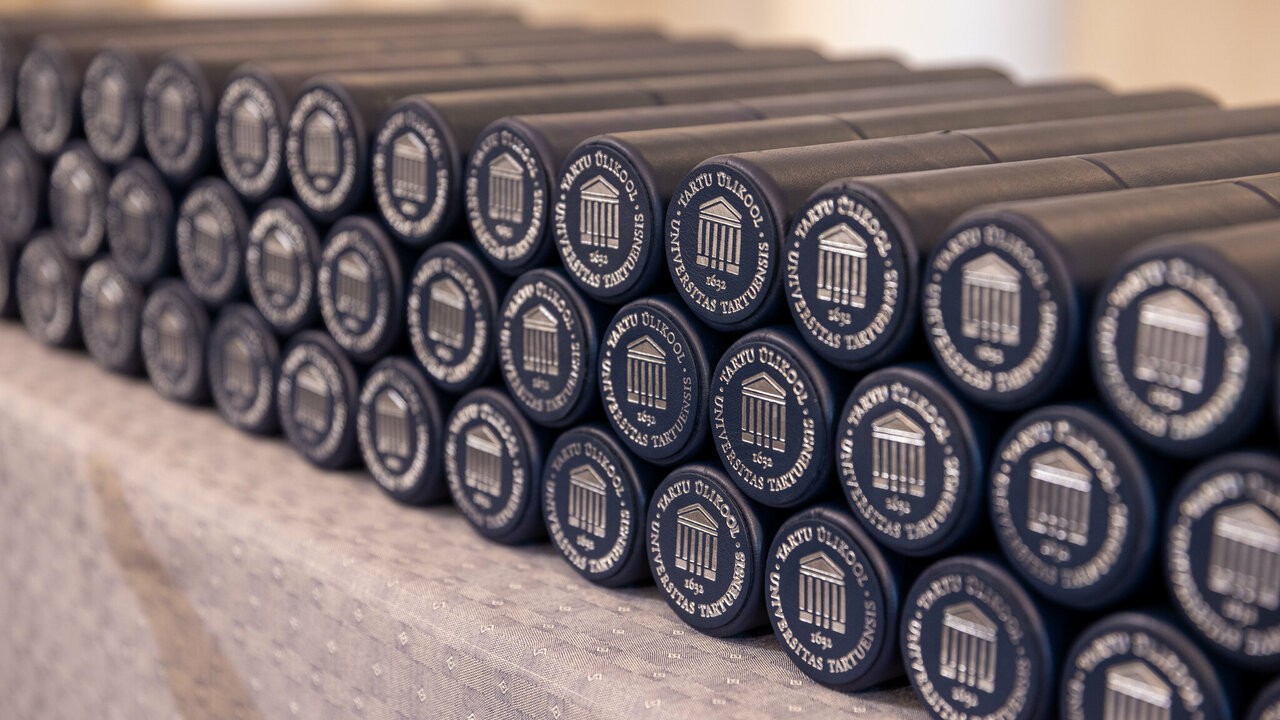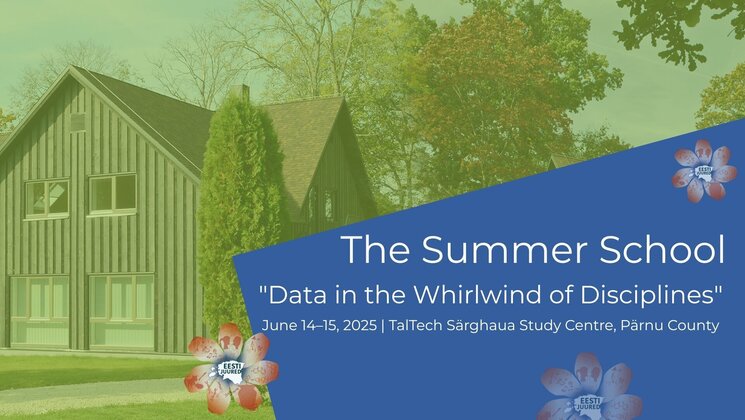-
Faculty of Arts and HumanitiesJakobi 2, r 116-121 51005 Tartu linn, Tartu linn, Tartumaa ESTJakobi 2 51005 Tartu linn, Tartu linn, Tartumaa ESTJakobi 2, IV korrus 51005 Tartu linn, Tartu linn, Tartumaa ESTJakobi 2, III korrus, ruumid 302-337 51005 Tartu linn, Tartu linn, Tartumaa ESTÜlikooli 16 51003 Tartu linn, Tartu linn, Tartumaa ESTLossi 3 51003 Tartu linn, Tartu linn, Tartumaa ESTÜlikooli 18 50090 Tartu linn, Tartu linn, Tartumaa ESTPosti 1 71004 Viljandi linn, Viljandimaa ESTJakobi 2 51005 Tartu linn, Tartu linn, Tartumaa ESTJakobi 2 51005 Tartu linn, Tartu linn, Tartumaa ESTFaculty of Social SciencesLossi 36 51003 Tartu linn, Tartu linn, Tartumaa ESTJakobi 5 51005 Tartu linn, Tartu linn, Tartumaa ESTLossi 36, ruum 301 51003 Tartu linn, Tartu linn, Tartumaa ESTNarva mnt 18 51009 Tartu linn, Tartu linn, Tartumaa ESTNäituse 2 50409 Tartu linn, Tartu linn, Tartumaa ESTNäituse 20 - 324 50409 Tartu linn, Tartu linn, Tartumaa ESTLossi 36 51003 Tartu linn, Tartu linn, Tartumaa ESTRaekoja plats 2 20307 Narva linn, Ida-Virumaa ESTRingi 35 80012 Pärnu linn, Pärnu linn, Pärnumaa ESTLossi 36 51003 Tartu linn, Tartu linn, Tartumaa ESTLossi 36 51003 Tartu linn, Tartu linn, Tartumaa ESTFaculty of MedicineRavila 19 50411 Tartu linn, Tartu linn, Tartumaa ESTBiomeedikum, Ravila 19 50411 Tartu linn, Tartu linn, Tartumaa ESTNooruse 1 50411 Tartu linn, Tartu linn, Tartumaa ESTL. Puusepa 1a 50406 Tartu linn, Tartu linn, Tartumaa ESTL. Puusepa 8 50406 Tartu linn, Tartu linn, Tartumaa ESTRavila 19 50411 Tartu linn, Tartu linn, Tartumaa ESTUjula 4 51008 Tartu linn, Tartu linn, Tartumaa ESTRavila 50411 Tartu linn, Tartu linn, Tartumaa ESTRavila 19 50411 Tartu linn, Tartu linn, Tartumaa ESTFaculty of Science and TechnologyVanemuise 46 - 208 51003 Tartu linn, Tartu linn, Tartumaa ESTNarva mnt 18 51009 Tartu linn, Tartu linn, Tartumaa ESTRiia 23b/2 51010 Tartu linn, Tartu linn, Tartumaa ESTRavila 14a 50411 Tartu linn, Tartu linn, Tartumaa ESTNarva mnt 18 51009 Tartu linn, Tartu linn, Tartumaa ESTRiia 23, 23b - 134 51010 Tartu linn, Tartu linn, Tartumaa ESTObservatooriumi 1 61602 Tõravere alevik, Nõo vald, Tartumaa ESTNooruse 1 50411 Tartu linn, Tartu linn, Tartumaa ESTJ. Liivi tn 2 50409 Tartu linn, Tartu linn, Tartumaa ESTVanemuise 46 51003 Tartu linn, Tartu linn, Tartumaa ESTVanemuise 46 51003 Tartu linn, Tartu linn, Tartumaa ESTArea of Academic SecretaryLossi 3 51003 Tartu linn, Tartu linn, Tartumaa ESTUppsala 6, Lossi 36 51003 Tartu linn, Tartu linn, Tartumaa ESTArea of Head of FinanceÜlikooli 17 51005 Tartu linn, Tartu linn, Tartumaa ESTArea of Director of AdministrationÜlikooli 18A (III korrus) 51005 Tartu linn, Tartu linn, Tartumaa ESTÜlikooli 18, ruumid 102, 104, 209, 210 50090 Tartu linn, Tartu linn, Tartumaa ESTArea of Vice Rector for Academic AffairsUppsala 10 51003 Tartu linn, Tartu linn, Tartumaa ESTÜlikooli 18b 51005 Tartu linn, Tartu linn, Tartumaa ESTArea of Vice Rector for ResearchW. Struve 1 50091 Tartu linn, Tartu linn, Tartumaa ESTArea of Vice Rector for DevelopmentNarva mnt 18 51009 Tartu linn, Tartu linn, Tartumaa ESTVanemuise 46 51003 Tartu linn, Tartu linn, Tartumaa ESTLossi 25 51003 Tartu linn, Tartu linn, Tartumaa ESTArea of Rector
Doctoral defence: Oliver Aasmets “The importance of microbiome in human health”

On 17 October at 14:15 Oliver Aasmets will defend his doctoral thesis “The importance of microbiome in human health” for obtaining the degree of Doctor of Philosophy (in Biomedicine).
Supervisor:
Associate Professor Elin Org, University of Tartu
Opponent:
Dr. Thomas Sebastian B. Schmidt, European Molecular Biology Laboratory, Heidelberg (Germany)
Summary

The technological revolution allows us to study the world beyond the limits that were holding us back only a couple of decades ago. One of such fields is the study of the human microbiome. Tiny microorganisms making up the microbiome such as bacteria and viruses have been known to intervene with our health for centuries, but the whole microbial ecosystem has turned out to be more complex than previously thought. The extent of the role of the microbiome to our own functioning and well-being is just starting to unravel. Nevertheless, microbiome has been associated with a large variety of intrinsic and extrinsic factors, including various complex diseases. This evidence is leading a slow but steady progress towards clinical applications such as using microbiome for improving disease diagnostics or estimating the risk of developing a condition. This thesis aimed to expand the understanding of the factors influencing our gut microbiome composition and assess the possibility and challenges in using the microbiome composition for the clinical applications. Firstly, we identified novel microbial biomarkers for identifying the progression of type 2 diabetes (T2D), which can be used to improve the current risk estimation. Secondly, using the comprehensive health data available in the Estonian Biobank, we characterized the profile of the gut microbiome in the Estonian population and identified various factors affecting the microbiome. Our study indicated that the long-term antibiotics usage has an accumulative effect on the gut microbiome composition independent of recent usage. The novelty of this result has a significant impact on the microbiome field and the future analysis need to account for such drug effects. Lastly, we considered dividing the subjects into a few distinct clusters based on their microbiome composition and evaluated the clinical applicability of such representation. We showed that although this approach is desirable in its simplicity, it is not sufficient for clinical applications. In conclusion, the microbiome science is heading towards clinical applications, but exploratory analysis is still needed. Nevertheless, the challenges ahead do not overshadow the enthusiasm.
The defence can be also followed in Zoom: https://ut-ee.zoom.us/j/92172461022?pwd=aHllSTJyaUttSHArd29kelk0eERNQT09. Meeting ID: 921 7246 1022, Passcode: 569316.
Doctoral defence: Oliver Aasmets “The importance of microbiome in human health”
Read more similar news






